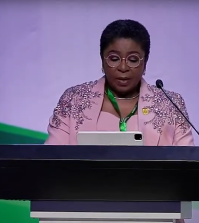Britain turns to private sector, foreign governments and retired officials for help with Brexit talks

Britain is turning to foreign governments, the private sector and former civil servants to help it ramp up its capacity to conduct complex trade negotiations following Britain’s decision to leave the EU.
Foreign secretary Philip Hammond yesterday told BBC television that the government was open to hiring back former civil servants who have trade negotiating skills as well as officials from other governments to help with Brexit talks.
He said: “I don’t think we can only recruit people who are British.
“If we can find Australians, Americans who have got high-level skills in trade negotiation, let’s recruit them as well.”
And today, a Cabinet Office spokesperson said: “We are currently assessing what expertise we will need to meet the challenge of conducting a successful negotiation of the UK’s withdrawal from the European Union.
“We want the brightest and the best working on these complex negotiations. It is right to draw on people with the necessary skills and expertise from within the civil service but also to look outside too.”
Sir Jeremy Heywood, the head of the civil service, has held talks with companies including accountants EY and KPMG, and the consultants McKinsey, according to the FT.
But, the companies told Sir Jeremy that their staff were already stretched helping clients deal with the fallout of Brexit and that while they want to help, it will come at a substantial price to the taxpayer, the FT reports.
Sir Simon Fraser, former permanent secretary at the Foreign Office told a select committee hearing that there were only about 20 people in the British civil service “who have active hands-on experience of international trade negotiations.”
The civil service, which has shrunk by a fifth under the austerity agenda, will require extra funding, according to former head of the civil service Lord Kerslake and Fraser.
Their views have been echoed by Dave Penman, general secretary of civil service managers’ union the FDA: “It’s a no-brainer that we’ll need extra capacity and capability; how that’s resourced is a matter for the next government.
“There’s no fat in the system, so if you draw people in from other parts of government you’ll be losing capacity elsewhere.”
The government will face three major sets of challenges: it will have to negotiate the arrangements for leaving the EU; establish new terms of Britain’s relationship with the EU after leaving and it will have to rework its trade ties with more than 50 other nations around the world which have agreements with the EU.
The UK hasn’t had its own team of trade negotiators since it joined the European common market in 1973.
For years, the European Commission has negotiated world trade on behalf of all member states.
Today, many of Britain’s most experienced experts work in Brussels for the Commission which employs up to 600 trade negotiators.
To make matters worse, some civil servants who have devoted their lives to developing Britain’s relations with the EU say they do not want to spend the next few years unravelling what they have built.
“Of course part of me thinks I have a duty to the country because I understand this stuff,” one senior official told the FT. “But I could always go and make some money in the City instead.”
For up to date government news and international best practice follow us on Twitter @globegov
See also:
Is the EU referendum result a wake-up call for employers?
Olly Robbins appointed head of government’s new Brexit unit
Oliver Letwin ‘completely unsuitable’ to lead Brexit unit, says former cabinet secretary
Clash over civil service advice in EU referendum
Bank of England’s independence under threat in EU referendum row
EU issues Poland with official warning over constitutional court changes
Sir Paul Jenkins, former UK Treasury Solicitor: EU Referendum interview
Managing the EU Migration Crisis
European Parliament orders Poland’s government to reverse changes to country’s top court






















To be frank any Civil Servants with specialist EU skills and knowledge need to charge the government the same as the consultants (who typically are not very expert) that will be brought in ‘to have a go’ alongside them. You really owe the government nothing and they should pay to reflect their great need, not get away with relying on good will.
Let’s make #Btexit signal the end of the old EU and the start of EU 2.0.
Make it more like friends working together without big brother.
Let’s work for an EU with less red tape:
Share if you agree #EU2DOT0